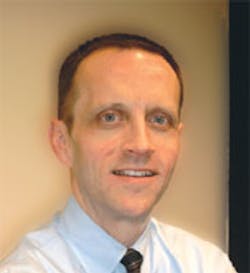Over the past decade or so the word “productivity” has been ubiquitous in manufacturing, and in businesses of all types: organizations, workers, technologies, strategies — each of these things is frequently praised for being productive. I don’t think I’ve every read or heard a reliable definition of “productivity”; the meaning is broad, but I suspect that each one of us understands it instinctively:
Productivity is the quality of performing well and consistently over time, of responding well to challenges, and of returning well on an investment. In the abstract, productivity is a measure of improvement from one period to another. In individuals, it’s the ability and even the instinct to identify ways to save resources and to increase revenues.
Forgers and other manufacturers may invest in new equipment or better process controls, but what they’re aiming to achieve is a higher return on the capital and resources they consume in their businesses, i.e., their total cost of operations. They’re aiming to achieve more with less. They’re striving for productivity.
Given all that’s happened in the global economy over the past two years, productivity would seem to be even more important than it has been previously, and it is — and that’s something of a problem. Everyone praises productivity, but government officials and finance chiefs trying to ignite an economic recovery, and specifically a manufacturing recovery, must acknowledge that productivity does not automatically create jobs. In fact, jobs can be a strain on productivity: there are many low-cost substitutes for workers.
Just about a year ago the federal government rushed $787 billion into an economic stimulus program, the intention of which was fund infrastructure projects and construction activity, which would spur demand for heavy equipment, industrial supplies, engineering services, and so on. Not least, the intention was to reverse rising levels of unemployment.
But, unemployment rose after the stimulus was implemented and it seems likely to stay at intolerably high levels for many months to come. This year, we know, federal officials are preparing another stimulus effort aiming more specifically at inducing businesses to resume hiring workers.
Industrial activity is recovering, and forgers and other manufacturers have reason to be confident. But, productivity will come before policy. They’re committed to saving costs, to maximizing resources, to getting the most value of the opportunities they have without increasing their obligations. They must do so to be productive. Until our economic strategists gain a better understanding of “productivity,” they’re going to be wasting a lot of resources trying to convince business to do otherwise.
As we do in this issue, the forging industry will turn its attention to capital investments when Forge Fair 2010 opens in April. It’s encouraging, after so many months of economic drift to see indications of confidence. Exhibitors are showing confidence in the forging market. Forgers who invest in new equipment, or ink deals for supplies or services, are making a bet on the future. They’re showing confidence in themselves and in their capabilities, and confidence in their colleagues and partners.
Confidence doesn’t just happen: it has to be developed, nurtured, and stoked. It starts as a hunch and it builds into faith. Achieving productivity is part of the restoration of faith. Whatever its limitations are toward the goal of job creation, productivity is not the problem. It’s part of the solution.
Robert E. Brooks | Editor
About the Author
Robert Brooks
Editor/Content Director - Endeavor Business Media
Robert Brooks has been a business-to-business reporter, writer, editor, and columnist for more than 20 years, specializing in the primary metal and basic manufacturing industries. His work has covered a wide range of topics including process technology, resource development, material selection, product design, workforce development, and industrial market strategies, among others.
Currently, he specializes in subjects related to metal component and product design, development, and manufacturing—including castings, forgings, machined parts, and fabrications.
Brooks is a graduate of Kenyon College (B.A. English, Political Science) and Emory University (M.A. English.)

